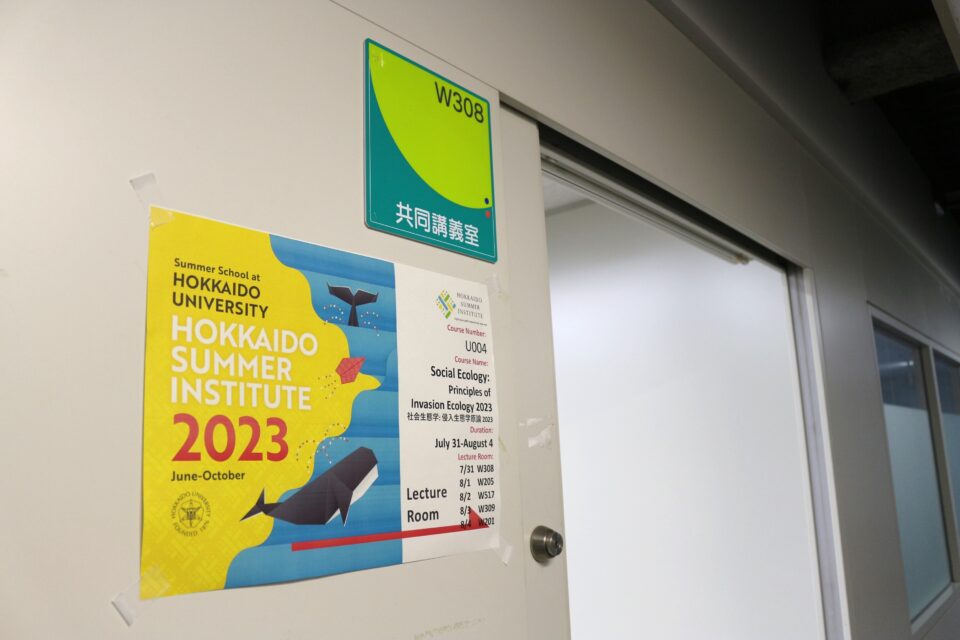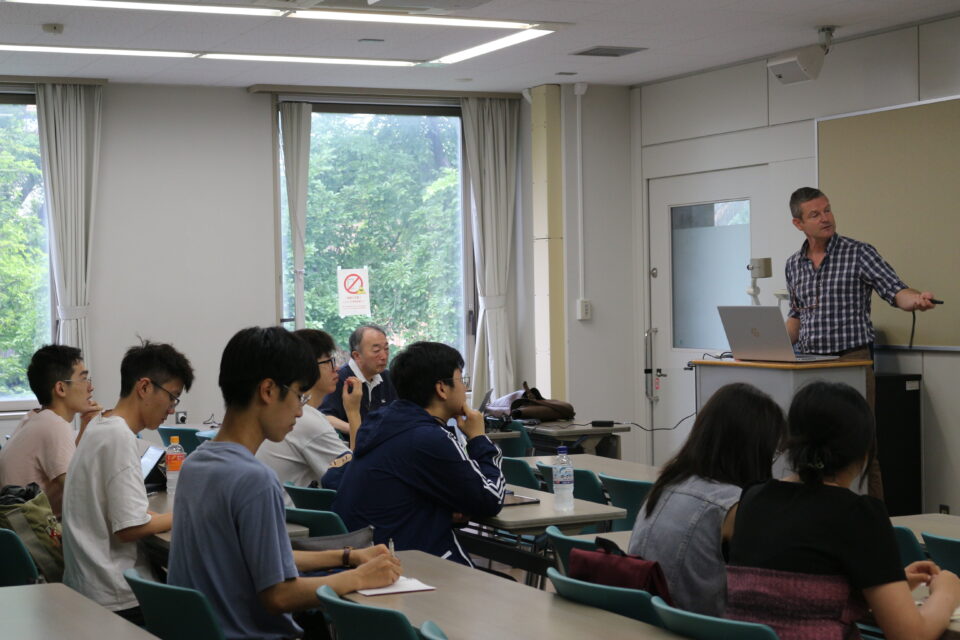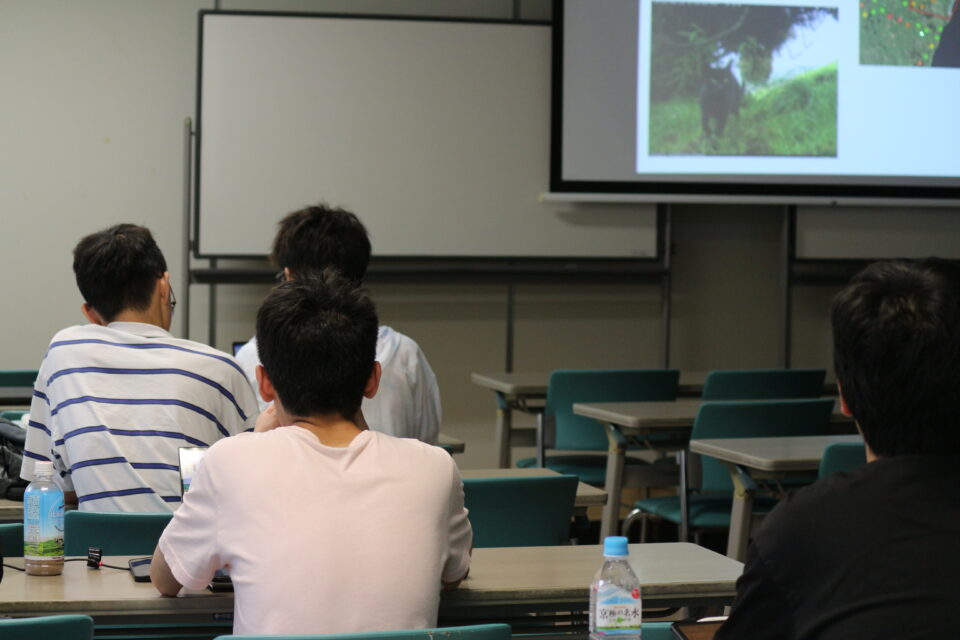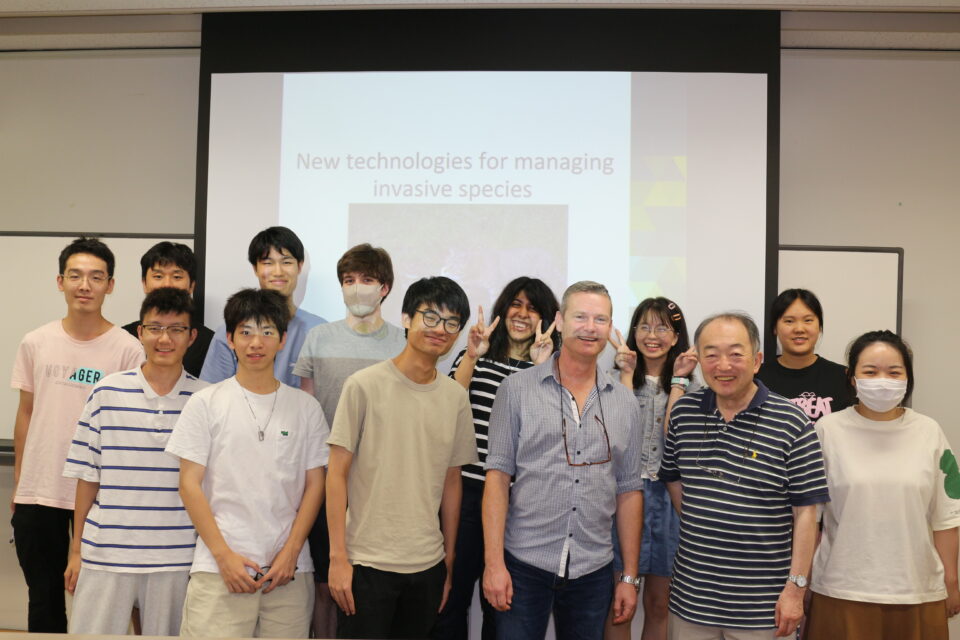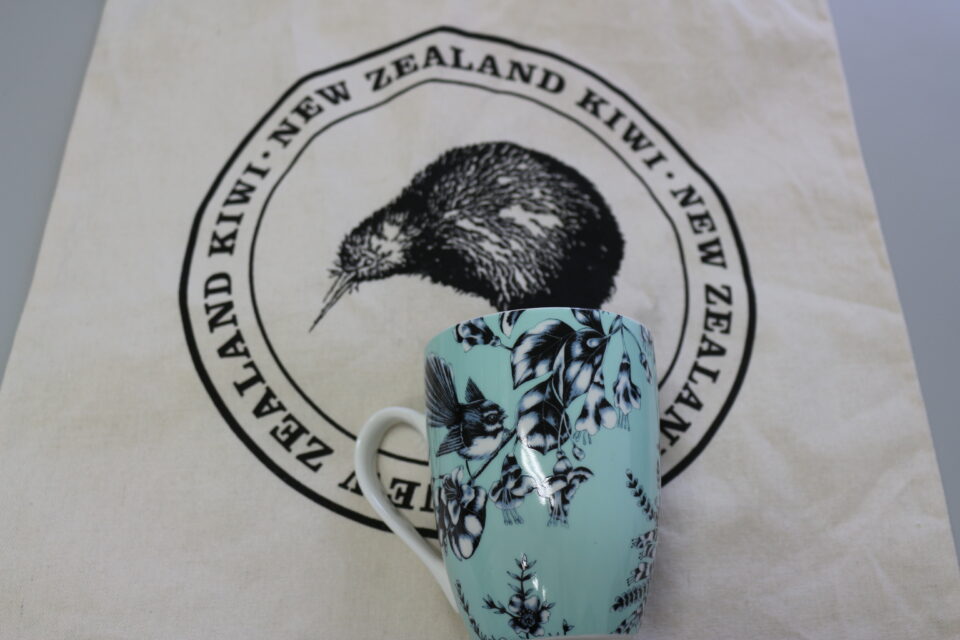From July 31 to August 4, the Hokkaido Summer Institute (HSI) 2023 course “Social Ecology: Principles of Invasion Ecology 2023” was offered on campus.
Much time has passed since invasive alien species—which pose serious problems to ecosystems and human societies, such as reducing native species and causing health hazards—began receiving attention in newspapers and on television. Despite this, Japan and other countries are still struggling to find fundamental solutions to these problems. This course, which is now in its sixth year and is geared toward undergraduates, aimed to deepen their understanding and knowledge of invasion scenarios and the extent of damage caused by invasive alien species in New Zealand and Japan. It also covered the causes of these invasions and countermeasures. The lecturer for this course was Dr. Al Glen, a researcher affiliated with Landcare Research (Wildlife Ecology & Management) in New Zealand. He has been a regular invited lecturer for this course since HSI program launch in 2017, except in 2020, when the course was cancelled due to the situation with Covid-19. This summer, Dr. Glen used numerous images and videos in his lectures to provide basic knowledge of invasive ecology through examples from New Zealand, Australia, and Japan.
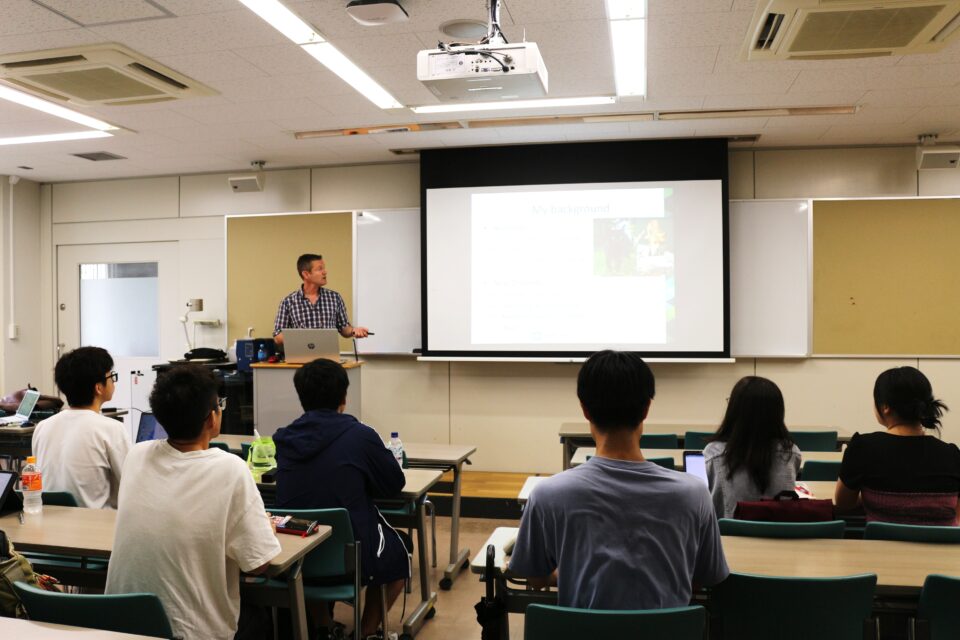
The five-day intensive course began with Dr. Glen introducing himself and Landcare Research, followed by their cutting-edge research. Dr. Glen specializes in mammalian invasive alien species. In Australia, his research focuses on the impact, control, and monitoring of feral cats and foxes, as well as their relationships with other predators. In New Zealand, he conducts research on the following: possums, stoats, and cats; the present situation of alien species management in island environments and measures for controlling these species; and monitoring methods using cameras and dogs. Dr. Glen’s self-introduction was followed by students introducing themselves, their affiliated universities, and their areas of research.
The first lecture posed the question “What is an invasive species?” This led students to realize that not all alien species are invasive and that not all invasive species are alien. Natural movements of species are occurring all the time, with examples including birds, bats, and other animals that travel by flight, as well as plants that move across water surfaces, such as seeds. It is known that invasions facilitated by human activities, such as travel and trade, started around 500 years ago and rapidly increased 200 years ago. The course explored differences between two categories of alien species. One category includes species such as Australia’s dingoes and New Zealand’s kiore (Polynesian rats), which were brought across the sea by indigenous peoples’ ancestors before the arrival of Europeans. The other category encompasses species such as goats, pigs, and rabbits, which were intentionally introduced to various islands worldwide during and after the Age of Exploration, as well as the rodents that found their way aboard vessels during the same period. Also discussed were the ongoing negative impacts since the 19th century of acclimatization societies, which caused ecosystem destruction worldwide. These societies altered the biota for primary industry and colonial profits by introducing plants and animals from UK to New Zealand. Cases like the mongoose on Amami Oshima were also highlighted, where attempts at biological management through the introduction of alien species led to the endangerment of native species. In the classes, the students explored urgent global issues involving endangered species and various invasive alien species. In doing so, they referred to numerous examples from regions including New Zealand, Australia, Japan, South America, and Africa, while considering the definitions of alien species and invasiveness, as well as effective countermeasures.
Like last year, this year’s course was held on campus, allowing the lecturer to adjust his pace of instruction based on student reactions. The lecturer encouraged students to freely ask questions via e-mail outside of class hours. This approach was designed to accommodate the diverse backgrounds of students from different universities and fields of study. As a result, the course achieved a high level of student understanding.
During the intensive course period, three lecture sessions were held daily from the second to the fourth class periods. As in the previous two years, each day ended with a brief quiz to evaluate students’ comprehension. Following the quiz, Dr. Glen and Professor Tohru Ikeda from the Laboratory of Regional Science went over the answers and provided explanations. These daily quizzes, each consisting of 10 questions, served to enhance students’ understanding of the topics discussed that day.
This year, the course attracted many students from overseas universities, providing Hokkaido University students with a rare and valuable opportunity to attend lectures and interact in English.
This course, taught in English by a leading researcher in invasive ecology who is actively involved in preventive efforts in the field, will not be offered next summer, due to the retirement of Professor Ikeda. It is scheduled to resume in or after the summer of 2025.



